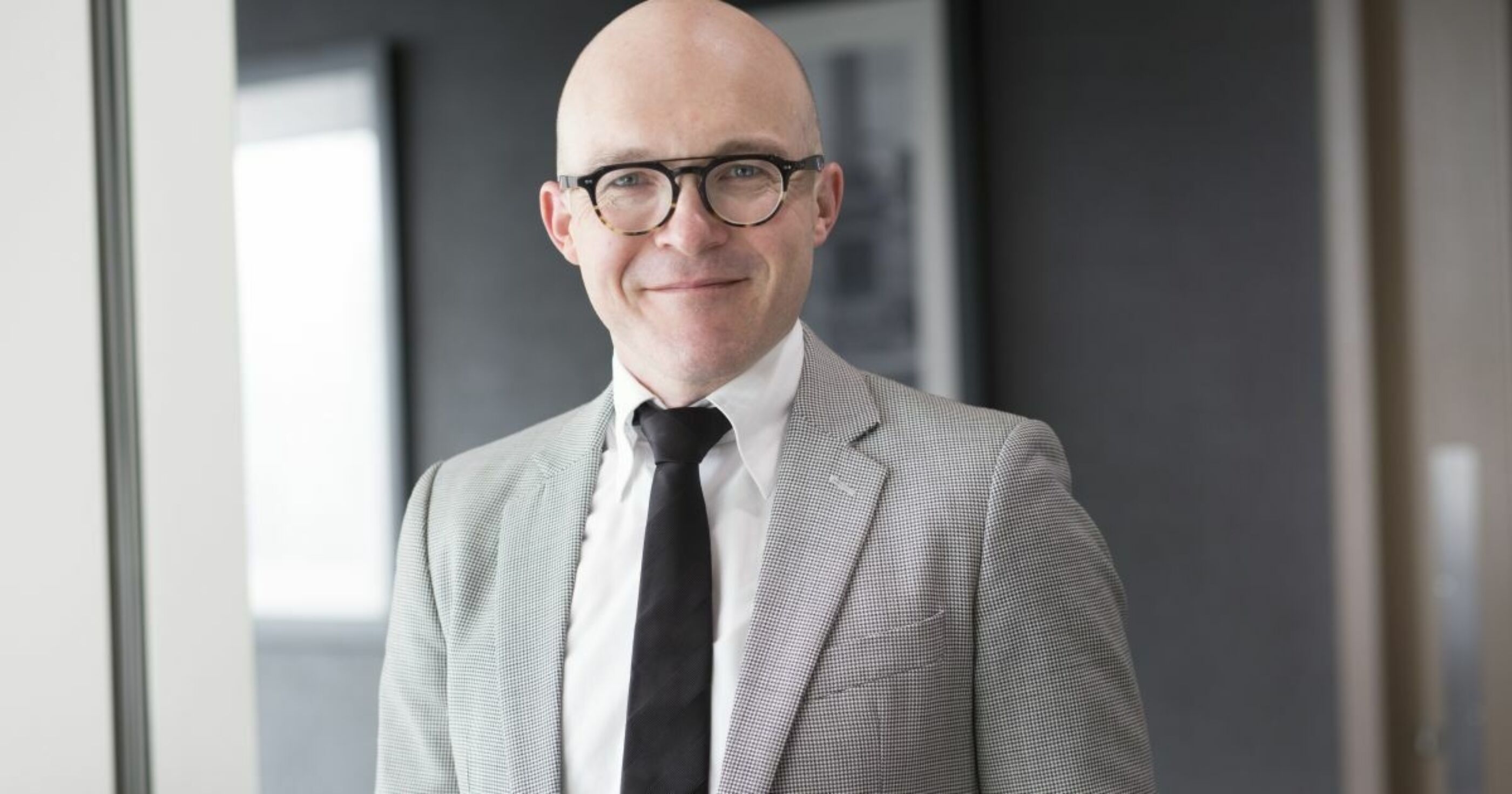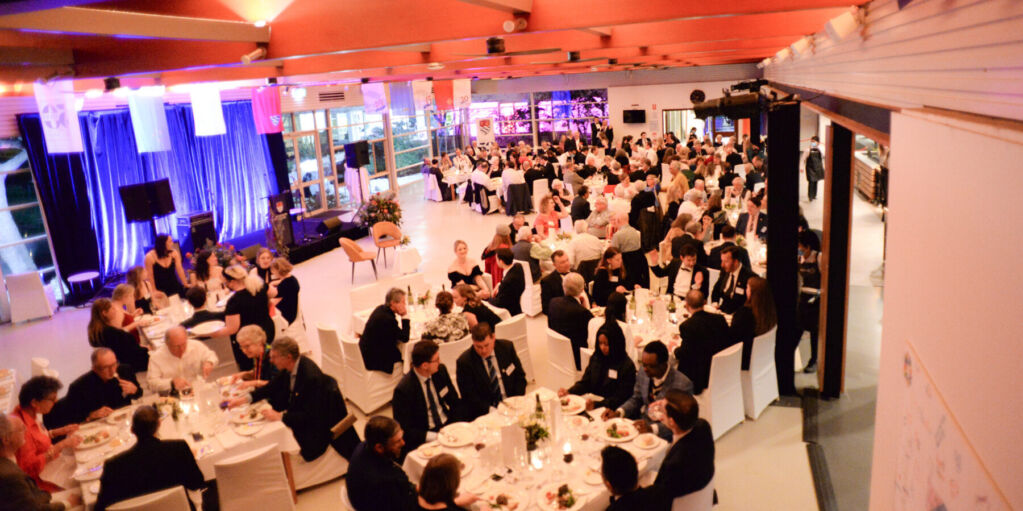In 2021, alumna Emily Osborne (2020-2022) interviewed alumnus Charlie Beasley (2000-2002) about his memories of Burgmann College, and his journey to executive LQBTQ* leadership
When were you at Burgmann and could you tell us about your experience?
I had a really happy time at Burgmann. I grew up in Armidale in Northern NSW. I took a gap year in the UK and then I arrived at Burgmann in 2000. At Burgmann I found my tribe and think I kind of found myself and worked myself out. I think I'd been quite a serious teenager without realising it, so I’d say my time at ANU was where learned how to have fun and ‘be a teenager’ for the first time bizarrely. School hadn’t always been the happiest place, but I hadn't realised that until I got to Burgmann and ANU, where I met some great people who have turned out to be lifelong friends.
I have warm, friendly, lovely memories of my time at Burgmann and studying at the ANU law school. I really threw myself into College. I was a Whip in first year and was on the O-Week committee in second year. I also got very involved in the Law School and was President of the Law School in third year. I sort of did everything quite fast and then by fourth and fifth year I moved out of College and I enjoyed university a bit more.
What was your experience of College as an LGBTQ* person?
I wasn't out to myself or to others in my first year and even had a few short-term relationships with girls (one of whom is still one of my best mates). Later, in second and third year I came out to myself, and to others and was pretty open about being gay by the time I finished university (although it took me much longer to eventually come out to my family). Bear in mind, this is the early 2000s when there were very few openly LGBTQ* students and the topic of gender identity or sexual orientation was not given the prominence or attention it is now. Whenever I did share with friends or others that I thought I was gay, they were very supportive and open to that discussion – what held me back was probably my concerns or worries about being gay and the fact that I perhaps didn’t see the LGBTQ+ role models around me that may have given me more confidence and hope that being gay was not going to be a block to my future sense of happiness or fulfilment. I expect the environment has moved on quite a bit since then.
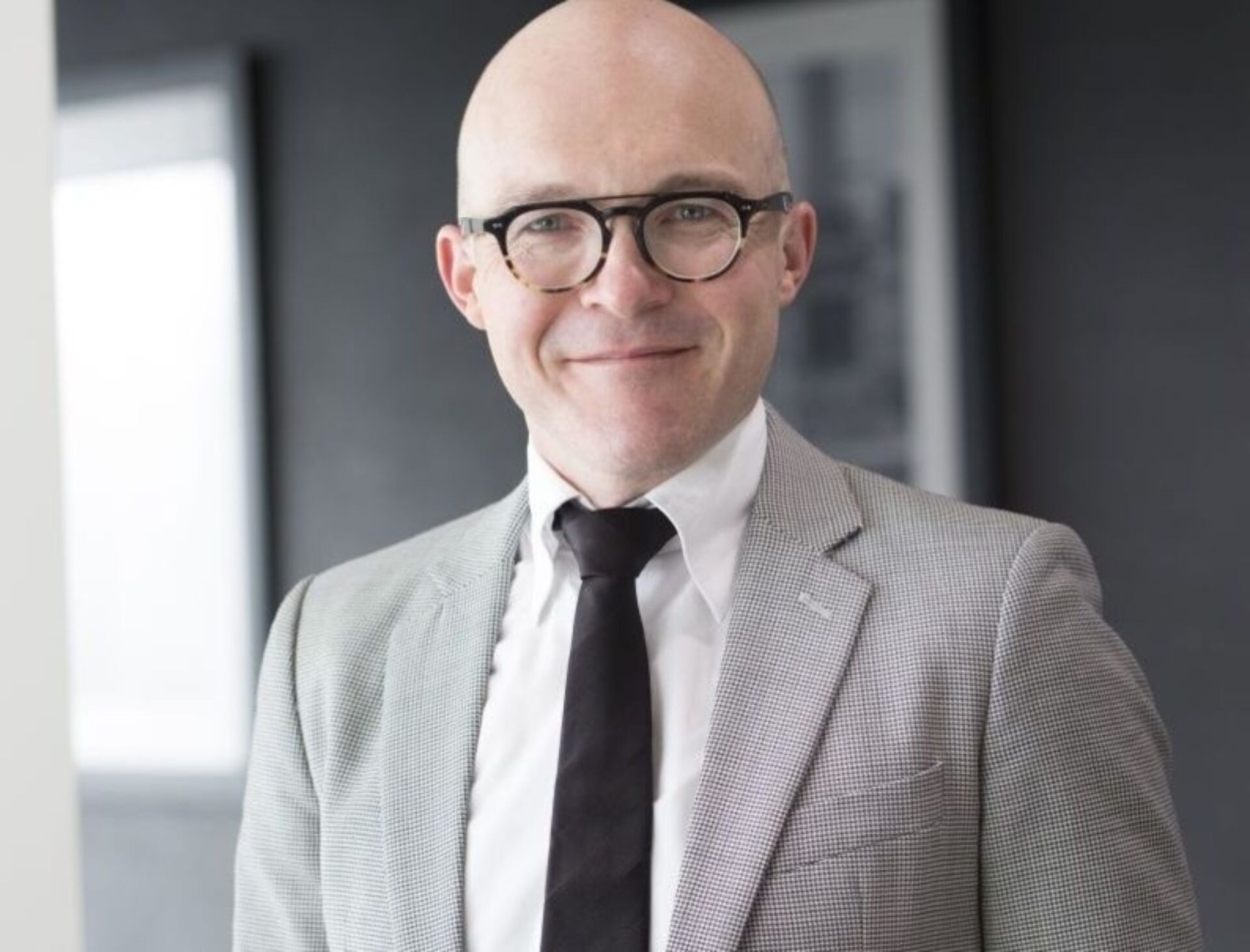
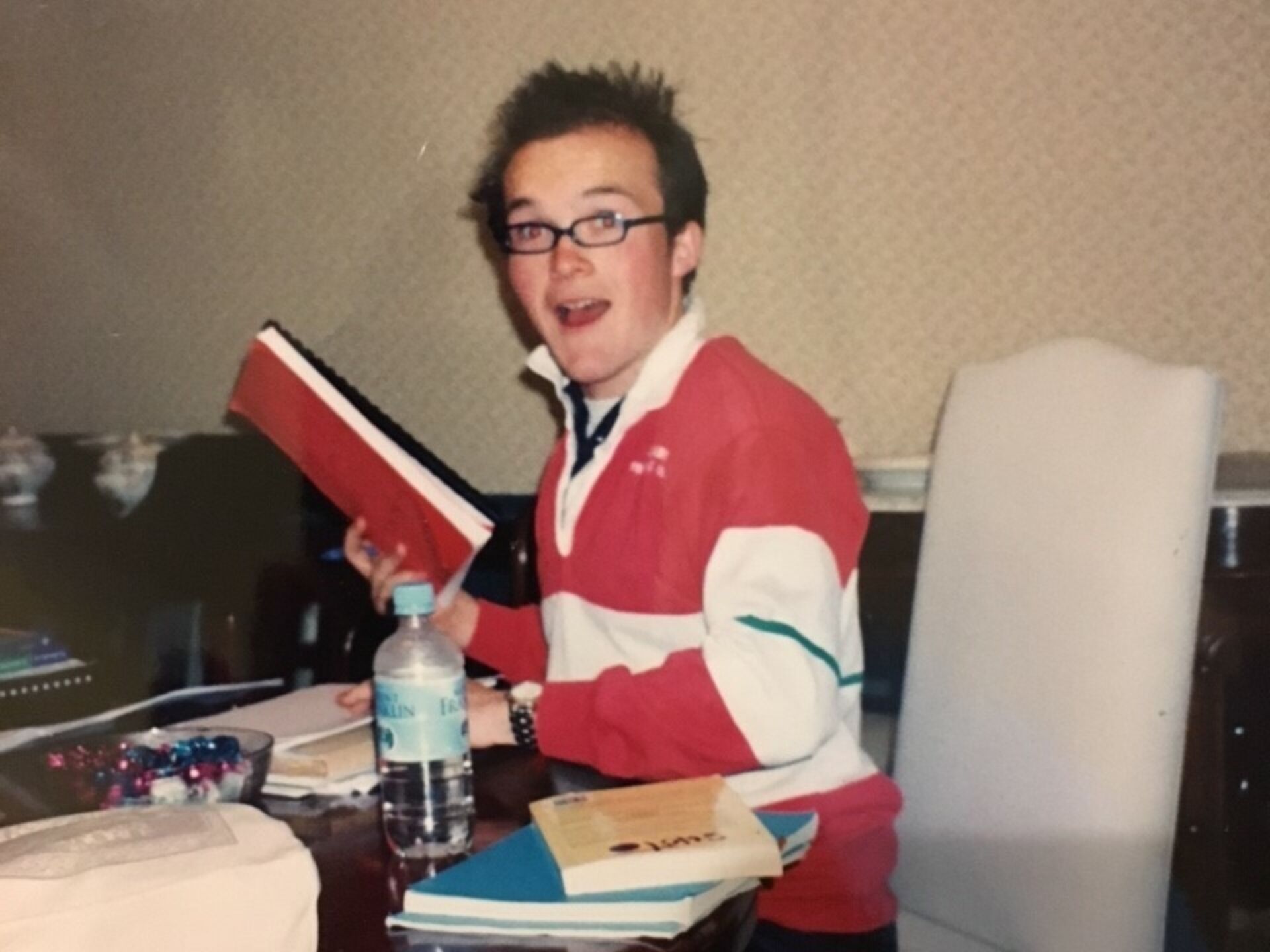
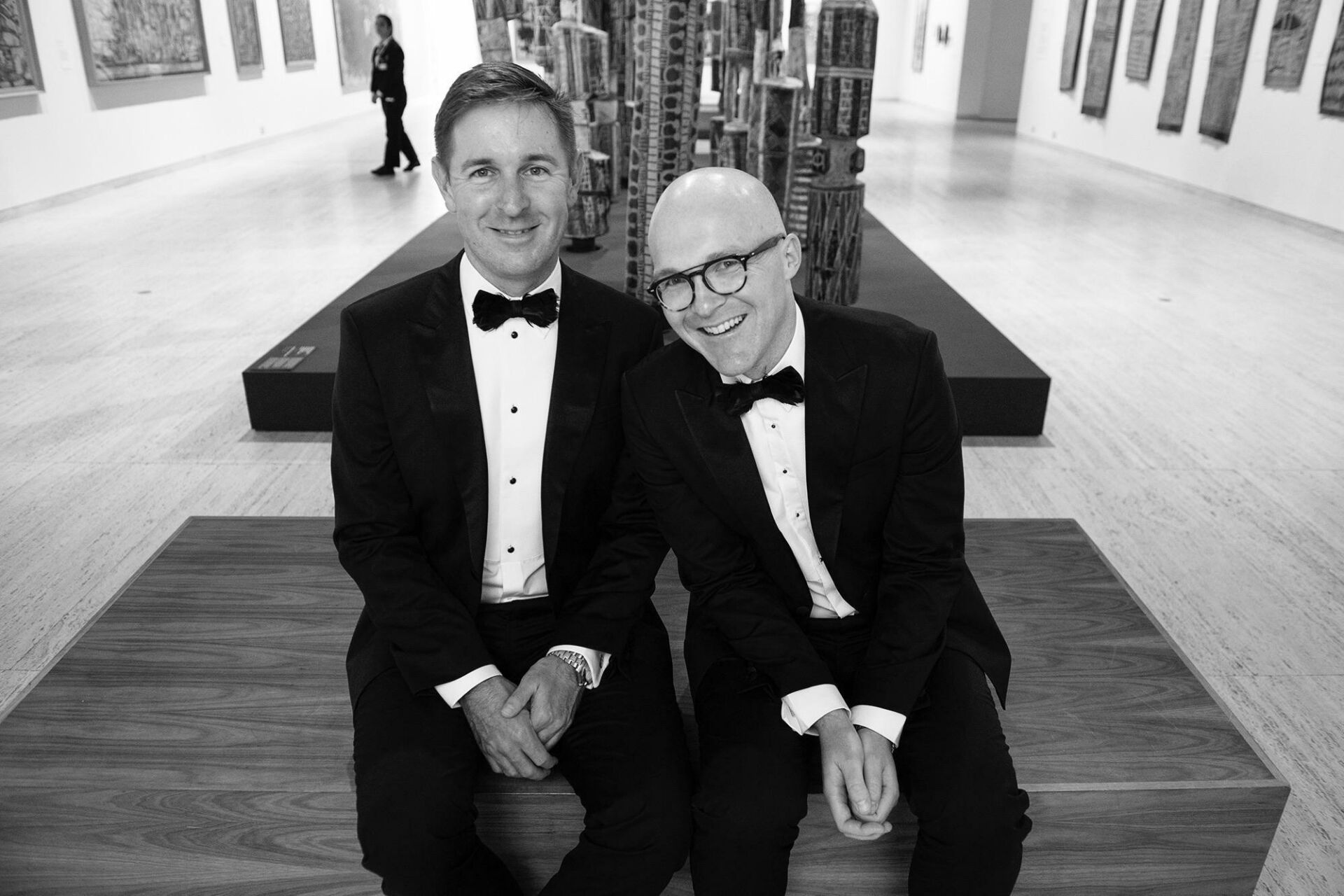
Looking back now, how do you reflect on your College experience?
I see my college years as really important. College kind of started the process of rounding myself out as a person. I suppose my reflection is; you will never have so much really unstructured, unplanned “hanging-out-time” with great people. The amount of time you can just spend doing nothing and talking absolute bollocks is insane; and you will never get that again. I cherish that.
When I get nostalgic, I look back at how much time I had to just be, and experience others, and do interesting things. I think there's something really precious about being present in that because, actually, once you get on the corporate treadmill, it’s very different. I loved doing the Law Review; that was hilarious. I directed that with my friend. It was the most middle-class Law Review you ever saw! I mean, you should have seen the number of boat shoes worn by the cast!
There is also something important about the opportunity the environment provides you to experiment and have a go at all sorts of things. University and college are safe places to do that. I had a great time because I threw myself at things. That sense that you can do quite a lot by being enthusiastic with literally no skill or experience has stuck with me and has really been a hallmark of my career and life so far!
What would you say to current residents?
University is a great time to start working out what kind of person you want to be: you get a chance to decide what that is, rather than being defined by your school groups or by your family background. It's a safe place to experiment in every possible sense, not just with your sexuality, but in terms of what you're interested in. I did IB (Inward Bound) for example and that enabled me very clearly to work out that ‘I’m not a runner,’. It’s a really safe ecosystem to try so much, so embrace it.
You have the opportunity to arrive new at Burgmann and kind of work out how you want to turn up in the world. I liked the fact that I didn’t feel defined by who I was at school. I don't think people necessarily have that opportunity at universities and colleges elsewhere because of the fact that college draws students from across the country. I would say: be present in those few years where you are able to spend time with people and really enjoy that. If you’re doing a double degree, you’ll finish when you need to finish – don’t rush it!
What led you from Burgmann to the kind of role that you're working in now?
I wasn't very strategic in my career choices. I went through the usual process of some horrific job interviews. I'm a big believer that you learn something from all of those experiences. I hadn't thought about being a lawyer, but I did a summer clerkship at a law firm called Gilbert + Tobin, and I found the vibe of that firm really exciting. So, I became a lawyer focussed on Competition Law in Sydney for a couple of years and then Woolworths (a client at the time) asked me whether I'd be interested in joining their public affairs team.
In my role at Woolies, I was responsible for helping manage relations with Governments across Australia. I was dealing with everything from abandoned shopping trolleys through to food packaging, energy laws through to unhappy MPs, spending time in the Northern Territory dealing with the awful alcohol consumption issues through to being on the Government’s task force during the QLD cyclones about how we get food to North Queensland. At one point my boss was away and I had to come up with an emergency shopping list for the army to fly food in – I am not sure an inner-city gay guy really had any sense of what was essential in North Queensland at this stage but I think Maggie Beer Quince paste was on the list! So, it was a really broad job.
Whilst the job was varied, I was quite unhappy. I was working in a business park on the outskirts of Sydney and lived in the inner city and just didn’t feel part of the culture. I decided to resign on my way to work one day (my partner, now husband, was incredibly supportive, particularly as I did not tell him beforehand!) I had six months off looking at what I was going to do next, when I got offered a job in London and I decided to become a lawyer again with the global law firm Linklaters. I spent 18 months working incredibly hard on a global merger that saw me commuting between London and Switzerland most weeks. Whilst the job looked glamorous, it confirmed the fact that I really did not like being a lawyer so it probably was not going to be a long-term home for me.
As a result of that, I ended up thinking I’d have to resign. But then this opportunity came up to work with one of the Managing Partners (CEO) of the firm. He needed a bit of support with some communications, so I did a secondment into his office, which turned into a full-time job, and then I worked with him and his successor as his Chief of Staff. This role involved a bit of everything from government relations, to helping run the firm, to being the guy next to him on the plane, in every meeting, reading every email and just generally being there to help them be more effective. And so, I spent about three or four years travelling the world on a plane every week or every second week. Spending lots of time in Asia, Europe, and the States. It was a really fascinating job and provided the most incredible opportunity to work and experience things around the world. Then after five years, I was in a discussion with an Egon Zehnder (EZ) consultant who knew my boss and they suggested joining EZ.
We're a pretty interesting firm. We're the world largest privately held leadership advisory and search firm, so we work with organisations and leaders around the world on the their most significant hires, talent, leadership and culture issues. We're a bit unique in the sense that we only hire people to work for ourselves who have never done this job before. So that's how I ended up at EZ where I get to spend hours every day with leaders and aspiring leaders to find the place where they are going to have the greatest impact. What I love is the job is focussed on people: it is about story-telling and it is about finding that human solution to the world’s biggest problems. I also like that I get to ask a lot of questions!
You played a very active role in setting up LGBTQ* safe spaces and support networks at Egon Zehnder. How did you come to be such a leader in that space?
So first of all, you come out to your friends, and you come out in a safe space at college or university. Then I was wracked with guilt about not telling my family for years. And, then I came out to them. They were great about it in the end with a few bumps along the way and with Andy (my husband) have really found the son they always wanted to have (they just got him in a slightly different way).
I used to get very, very anxious, like incredibly anxious. I found it very difficult to take constructive feedback: I took it very personally. I would get quite upset if I got something wrong, things like that. I went and saw a psychologist because I was just really unhappy. I spent quite a bit of time working with him and he said to me, ‘you spent your formative years worried about people finding things out about you, so you overcompensated by trying to be an overachiever, which means psychologically going from getting something wrong, to people thinking you're uncovering your secrets, to people thinking you're terrible’. This is just the way you interpreted things not going well.
So fundamentally, that unlocked a lot for me and made me realise the importance of really addressing and coming to terms with the experience of growing up gay and not, at the time, really being comfortable in that. As a result of this experience, and a continued focus on mental health, I have not only a much better grasp of my own anxiety, but how to manage that. I realised that even though I had a relatively straightforward experience, it did impact me as an individual and it was only after I really thought about it and engaged with that, that I started to make strides and managed to deal with stress a bit more.
In terms of my jobs, it was always kind of in the open that I was gay at work, but it was never part of my professional career. I was in a very LGBTQ* supportive law firm and then at Woolworths, it was never an issue, but I didn't go out of my way to say anything about it. I didn't really understand affinity groups, because I was a bit like well, I don't need them. And then at Linklaters they started to do quite a lot and then it was coming up to Pride Month and they said, we want to do a video about what it's like to be LGBTQ* and asked if I would be one of the people they interviewed. I said yeah, sure, why not? I mean, I didn't not think about it at all. On video then, I talked about what it was like to be gay. And for the first time ever, I kind of had to have this conversation where I talked about actually how it shaped who I was: what it was like coming out. You know, these kinds of things that you never talk about.
It turned out being the most watched video the firm ever had ever produced. It was sent publicly and then the Chairman and Managing Partner, two straight white guys started also becoming very visible LGBTQ* allies and advocates. I found myself going hang on, there's something to this, like why is this thing that doesn't necessarily impact others directly, why is this resonating so much, and why are we seeing this positive role that actually, straight white allies are having in our organisation?
It was a moment in time. I started to own it. I thought, maybe actually one of the reasons I was a good Chief of Staff was because I know how to dial up: I'm quite agile in the way that I deal with people. I've pushed through challenge. But even for me actually it made me address my anxiety; I had to go through that transformative moment of, I've decided I'm now turning up this way. I realised that there was an opportunity to really help unlock our thinking as a firm, both for the people internally who were not represented and externally with our clients. This saw me interview about thirty senior LGBTQ* people around the world to understand what their life experience was like. We did some background work and then last year we launched EZ Plus.
When I speak to most senior gay leaders or LGBTQ* leaders around the world, they say their career only took off and they were only really happy when they embraced who they are as an LGBTQ* individual, and actually how that impacts the way they turn up at work or in their life. We have an incredible opportunity and responsibility at a firm like Egon Zehnder to help LGBTQ+ leaders go on that journey, so they can be the role models that I wish I’d had early in my career and that young people still need right now.
What advice do you have for people who are considering coming out?
Come out when you're ready to come out. No one should spend their life hiding something to that extent, unless they really want to and there's reasons that they feel more comfortable, but really you need to be clear why, why aren't you coming out? Also, coming out doesn't have to be the YouTube kind of video. I don't see coming out as telling people. That's why I talk about coming out to yourself and telling people you want to tell and not being worried if other people find out. Do it in your own organic way.
The decision to come out is quite empowering. One other thing is, as much as you don't want people to talk about it, most people can generally get a sense in very heterosexual environments like college, whether you're LGBTQ* or not, right? As much as you might think you're amazing at hiding it, you’re probably not. So, getting stressed about being defined by it is a little bit of a waste of energy, as I found out. If people are going to make some assumptions about you, why don't you tell the story you want to tell about it. Lay down the narrative or say look, I'm gay, it's kind of my thing you know and it's only one part of me. If that's the way you want to talk about it, and you start the conversation, you get the chance to do that.
Lastly, could you talk a little bit about LGBTQ* identity and leadership?
Coming out as LGBTQ* is not just something to overcome. You can decide how much you want it to be part of your professional or personal identity. But you only get to do that if you actually decide to do it, rather than just kind of ignoring it. I don't talk about it all the time but it's created real professional advantage for me. I think it forced me to go through some life experiences that I don't think others do. I look at some people later in their careers that are really struggling with identity and motivation.
At Egon Zehnder 90% of our job is talking to people as they go through really big leadership transitions, and most of it has to be about going through mind-set shifts really owning where they want to go, and at the heart of it we always want to know, do they really know who they are? LGBTQ* people have often gone through that experience decades before most people.
If you’ve just started the journey, that's absolutely fine. Don't waste time worrying about being defined by other people because if you do that in any aspect of your life it's just wasting energy. Make that decision and I think I'd say more broadly for the LGBTQ* community, really deciding and thinking about where you're at your best and what's at the heart of that, and owning that, is kind of what makes great leaders.
